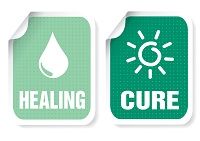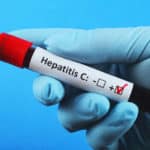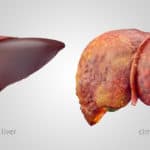After Being Cured…Can Hep C Return?


Treatment regimes for Hepatitis C have been steadily improving, leaving a growing number of people with a well-earned, congratulatory status of beating the virus. Instead of ‘beating the virus,’ some health professionals use the word cure to describe successful Hepatitis C treatment. Regardless of what you call this coveted achievement, those who have been cured of Hepatitis C are often dubious of its permanence.
Sustained Virologic Response
The benchmark of Hepatitis C treatment, a sustained virologic response (SVR) is as close as we can get to a cure for this disease. SVR is declared if the person’s viral load is non-detectable six months after administration of the last dose of Hepatitis C medication.
Achieving a sustained virologic response usually means the medicine eliminated all traces of Hepatitis C from the body. However, it is possible that a tiny bit of the virus hid and replicated after treatment ends. If this were to happen, it would usually do so within six months – thus the standard of defining SVR at six months. The ability of Hepatitis C viral particles to hide and wait longer than half a year to replicate is slim, but not impossible.
SVR means the virus is probably permanently gone. Hepatitis C is highly unlikely to return after a person achieves SVR, but:
- studies have shown that with a six-month SVR, relapse occurs in 1 to 2 percent of patients.
- the return of Hepatitis C after living one year without the virus is even rarer.
After one year of being free from the virus, the odds of Hepatitis C eradication permanence are much better. In fact, many medical providers stop checking for the presence of Hepatitis C after one year of non-detectable viral particles.
Re-Infection
As stated previously, the risk of Hepatitis C returning after SVR is extremely low – unless the person is exposed to the virus again. Some illnesses, like Hepatitis A, chickenpox and measles, result in immunity to future infections. The antibodies the body creates to fight these illnesses remain in the immune system’s memory and act as prophylactic soldiers to defend against subsequent exposure. The antibodies formed while fighting Hepatitis C lack this characteristic; therefore, they do not provide future immunity against Hepatitis C.
After achieving SVR, it is still important to shield yourself against any potentially infectious contact or activity. As such, partaking of the following that carries risk puts you in danger of being re-infected with Hepatitis C:
- Sharing needles used for intravenous drugs or tattoos
- Snorting drugs with shared equipment
- Sharing personal care items (toothbrush, razor, etc.) with an infected person
- Engaging in high-risk sexual behavior with an infected partner – or with multiple partners
Defeating Hepatitis C with antiviral combination therapy is a blessing. Recently, the pharmaceutical industry has made great strides to improve the likelihood of achieving SVR. Although some people might refer to SVR as a cure, it does not guarantee that all traces of the Hepatitis C virus are gone. Those who have successfully been declared ‘free from Hepatitis C’ must remember to avoid any contact with potentially contaminated blood. A history of having Hepatitis C does not provide immunity, making re-infection a threat to anyone engaging in risky behaviors.
Though not absolute, the likelihood of SVR being a permanent absence of Hepatitis C is great. The bottom line regarding SVR permanence is – the more time that separates you from a positive Hepatitis C titer, the greater confidence in declaring yourself cured.
http://hepatitis.about.com/od/treatment/f/SVR.htm, What is a Sustained Virologic Response or “SVR”?, Charles Daniel, Retrieved July 3, 2014, about.com, 2014.
http://www.hcvadvocate.org/hepatitis/factsheets_pdf/HCV_Neg.pdf, HCV Negative: A Guide for Healthy Living Without Hepatitis C, Lucinda K. Porter, RN, Retrieved July 3, 2014, Hepatitis C Support Project, 2014.
https://www.health.ny.gov/diseases/communicable/hepatitis/hepatitis_c/whos_at_risk.htm, Who’s at Risk for Hepatitis C, Retrieved July 3, 2014, New York State Department of Health, 2014.
http://www.hepatitis.va.gov/provider/reviews/hcv-treatments.asp#S5X, Hepatitis C Treatment, Retrieved July 3, 2014, US Department of Veteran Affairs, 2014.







